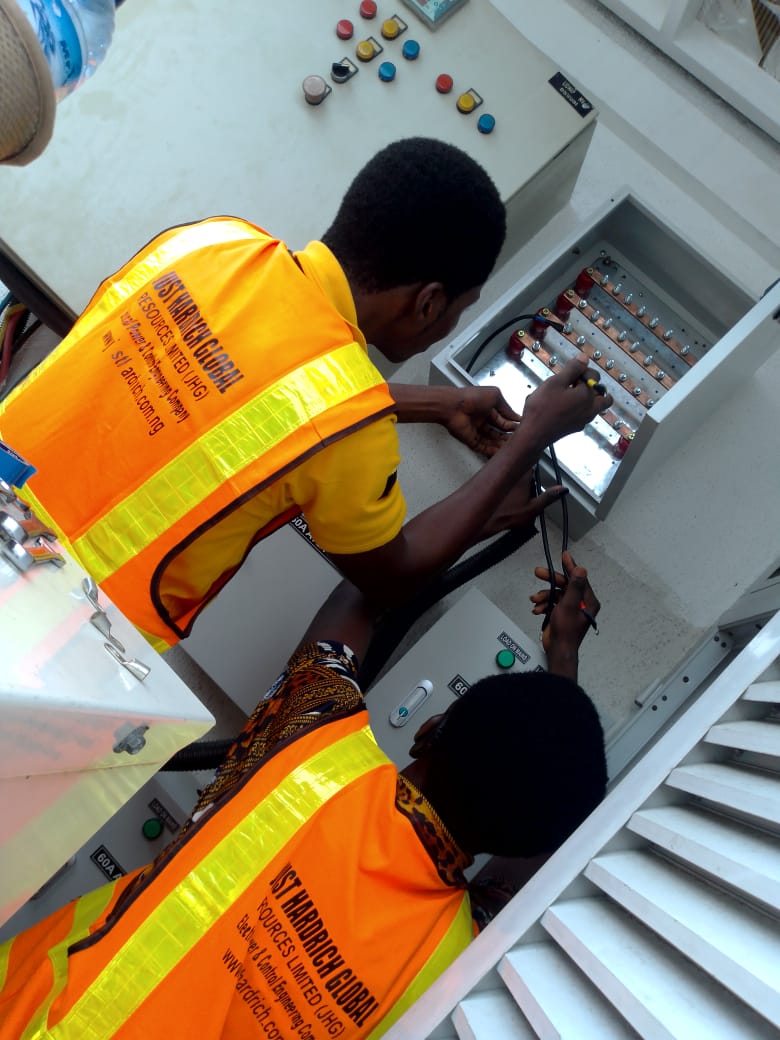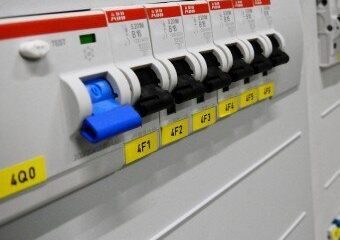Working with electricity can be dangerous if proper safety measures are not taken. Ensuring your safety and the safety of those around you is paramount. At Just HardRich Global Resources Limited, we prioritize the well-being of our clients and workers by adhering to stringent safety protocols. Here, we present ten essential safety precautions to follow when working with electricity. These guidelines will help you minimize risks and work safely and efficiently.
1. Avoid Water at All Times
Water is a conductor of electricity, and working with electrical components with wet hands can increase the risk of electrical shock. Ensure that your hands are dry and the work environment is free from any water before beginning any electrical work. Additionally, avoid working in wet areas or near water sources unless necessary safety measures are in place.
Example: If you need to fix a switch in a bathroom or kitchen, make sure the area is completely dry. Use a towel to dry your hands and the surface you’re working on before starting any repairs.
2. Inspect Equipment for Damage
Before using any electrical equipment, inspect it for frayed cords, damaged insulation, or broken plugs. Damaged equipment can pose serious electrical hazards, including shocks and fires. Replace or repair any faulty equipment immediately.
Tip: At Just HardRich Global Resources Limited, we regularly conduct equipment checks to ensure all tools and devices are in optimal condition. Consider implementing a similar routine in your workspace.
3. Turn Off the Mains
When working on electrical receptacles or circuits at home, always turn off the main power supply. This precaution prevents accidental electric shocks. Additionally, place a sign on the service panel to alert others not to turn on the power while you are working.
Practical Advice: Use a lockout/tagout (LOTO) system to secure the main switch in the off position. This system is especially useful in workplaces with multiple workers, ensuring no one accidentally restores power during maintenance.
4. Use Insulated Tools
Always use tools with insulated handles when working with electricity. Insulated tools protect you from electric shocks by preventing the flow of electricity through the tool to your body.
Example: Screwdrivers, pliers, and wire cutters with insulated handles should be a standard part of your toolkit. Ensure they meet the safety standards for electrical work.
5. Observe Warning Signs
Electrical hazards often come with warning signs like “Shock Risk” or “High Voltage.” Always be observant of these signs and follow the established safety rules. Familiarize yourself with the electrical code and safety standards applicable in Nigeria.
Trend: Many modern electrical systems now include visual and audible warning systems to alert workers of potential hazards. Incorporate these technologies into your safety practices.
6. Wear Appropriate Protective Gear
When working on any electrical circuit, wear insulated rubber gloves and goggles to protect yourself from electrical shocks and debris. Personal protective equipment (PPE) is essential for safety.
Example: At Just HardRich Global Resources Limited, our workers are equipped with high-quality PPE, including gloves, goggles, and safety boots, ensuring maximum protection during electrical tasks.
7. De-Energize Before Repairing
Never attempt to repair energized equipment. Always de-energize the circuit first by using a tester to ensure there is no electrical current flowing through it. This step is crucial in preventing electric shocks.
Practical Tip: Use a non-contact voltage tester to check all wires and components before starting any work. This tool can detect live wires without direct contact, adding an extra layer of safety.
8. Use Non-Conductive Ladders
When working at heights, avoid using aluminum or steel ladders as they can conduct electricity. Instead, use bamboo, wooden, or fiberglass ladders to prevent electrical surges from passing through your body.
Example: For outdoor electrical work, a fiberglass ladder is ideal due to its durability and non-conductive properties. Always check the ladder for stability and integrity before use.
9. Know the Wire Code
Familiarize yourself with the wire color code and electrical standards specific to Nigeria. This knowledge helps you identify the purpose of each wire and reduces the risk of wiring errors.
Tip: Create a reference chart for the wire color codes and keep it accessible in your workspace. This chart can serve as a quick reminder and aid in ensuring correct connections.
10. Regularly Check GFCIs
Ground Fault Circuit Interrupters (GFCIs) are essential safety devices that protect against electrical shocks. Check all GFCIs once a month to ensure they are functioning correctly. These devices are especially important in damp areas like bathrooms and kitchens.
Practical Advice: Test your GFCIs by pressing the “test” button. If the GFCI doesn’t trip, it may be faulty and should be replaced. This simple check can prevent serious electrical hazards.
Conclusion
Ensuring electrical safety is a critical aspect of working with electricity. By following these ten safety precautions, you can minimize risks and create a safer working environment. At Just HardRich Global Resources Limited, we are committed to promoting electrical safety and providing top-notch Electrical Power and Control Engineering services.
For more expert advice and professional electrical services, contact Just HardRich Global Resources Limited. We are dedicated to ensuring your safety and delivering exceptional solutions for all your electrical needs.




